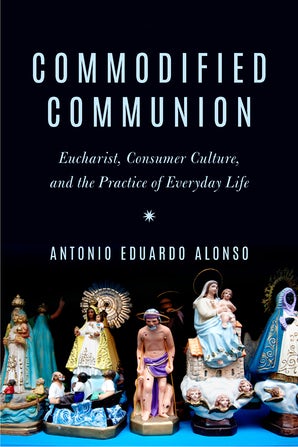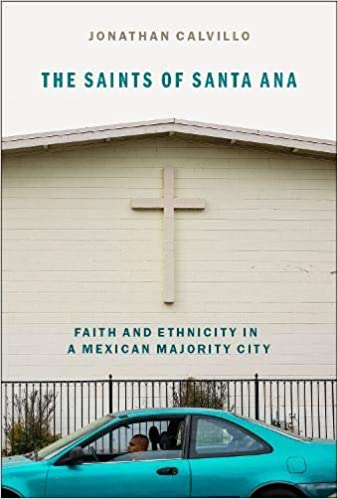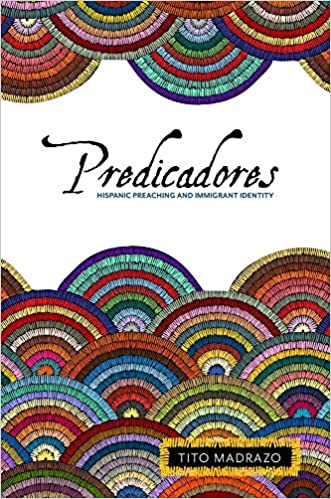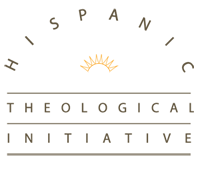
Antonio (Tony) Alonso
Antonio (Tony) Eduardo Alonso is Assistant Professor of Theology and Culture and Director of Catholic Studies at Emory University’s Candler School of Theology. In 2019 he was awarded the Catherine Mowry LaCugna Award for new scholars for the best academic essay from the Catholic Theological Society of America for his essay “Listening for the Cry: Certeau Beyond Strategies and Tactics” (Modern Theology, 2017). Alonso’s first book, Commodified Communion: Eucharist, Consumer Culture, and the Practice of Everyday Life (forthcoming, Fordham University Press) offers a theological account of contemporary consumerism and its relationship to the Eucharist. Alonso currently serves on the Board of Directors for the Aquinas Center for Theology, the treasurer for La Comunidad of Hispanic Scholars, and the liturgical liaison for the Catholic Theological Society of America.

Jonathan A. Calvillo
Jonathan Calvillo’s teaching and research interests center on the sociological study of religion, race and ethnicity, and immigration. His scholarly work has focused on how religious affiliation influences the manner in which Latine immigrants construct their ethnic identities. Currently, Dr. Calvillo is a research fellow in the Latino Protestant Congregations project, a national study examining the practices and experiences of Latino Protestant congregations. In tandem, he has conducted neighborhood based research within urban ethnic enclaves, examining how Latino religions, including formal and “folk” traditions, are lived out in the public arena. Much of Dr. Calvillo’s research is informed by his nearly two decades of involvement in congregational ministry and community development work in urban multi-ethnic settings.

Tito Madrazo
Dr. Madrazo is a native of Venezuela who received his BA and MA at Baylor University, his MDiv from Gardner-Webb University and, most recently, his ThD from Duke Divinity School. He now serves as the Senior Pastor of Woodland Baptist Church in Wake Forest, North Carolina and continues his academic life as a Consulting Faculty member at Duke Divinity School, where he teaches courses in preaching and provides leadership within the Hispanic House of Studies. He also has taught extensively throughout Latin America. Tito and his wife, Danielle, live in NC with their two daughters, Sophia and Ava.

BUY HERE

BUY HERE

BUY HERE
Resist! This exhortation animates a remarkable range of theological reflections on consumer culture in the United States. And for many theologians, the source and summit of Christian cultural resistance is the Eucharist. In Commodified Communion, Antonio Eduardo Alonso calls into question this dominant mode of theological reflection on contemporary consumerism. Reducing the work of theology to resistance and centering Christian hope in a Eucharist that might better support it, he argues, undermines our ability to talk about the activity of God within a consumer culture. By reframing the question in terms of God’s activity in and in spite of consumer culture, this book offers a lived theological account of consumer culture that recognizes not only its deceptions but also traces of truth in its broken promises and fallen hopes.
Catholicism has long been the dominant religion among ethnic Mexicans in the U.S. Recent shifts, however, have challenged the traditional association between Mexican ethnicity and Catholicism. Evangelical Protestantism has emerged as a notable alternative of ethnic identity expression for ethnic Mexicans. This book takes readers into the thriving Mexican-majority neighborhoods of Santa Ana, California, a city once dubbed the hardest place to live in the U.S. There, Jonathan E. Calvillo explores how religious practices permeate the fabric of everyday social interactions for Mexican immigrants. How does faith shape these immigrants’ sense of ethnic identity? To answer this question, The Saints of Santa Ana compares the experiences of Catholic and Evangelical Mexican immigrants-the two largest religious groupings in the city. Drawing on five years of participant observation and in-depth interviews, this book argues that religious affiliations set Catholics and Evangelicals along diverging trajectories with regard to ethnic identity. In particular, Calvillo argues, Catholics and Evangelicals have differing perspectives on collective memory and ethnic community. The Saints of Santa Ana offers a rich portrait of a fascinating American community.
Hispanic Protestants have been one of the most rapidly growing demographic groups in the United States over the last few decades. Sociologists have written about the cultural and political identities of this group, and theologians have reflected on theology and ethics from Hispanic Protestant perspectives, but considerably less attention has been paid to the predicadores/preachers in Hispanic Protestant congregations and the messages they proclaim on a weekly basis. In Predicadores: Hispanic Preaching and Immigrant Identity, Tito Madrazo explores the sermons of Hispanic Protestant preachers within the context of their individual and communal journeys. Formed by overlapping experiences of migration and calling and rooted in their own bilingual and bicultural realities, the first-generation preachers who collaborated in this study interpret and proclaim Scripture in ways that refuse easy characterization. What is certain is that their preaching―which incorporates both traditional and liberative elements―resonates deeply with their immigrant congregations. Madrazo contends that the power of these preachers lies in how they consistently proclaim the characteristics of God that have been most significant to them in their own migrations. Based on four years of collaborative ethnographic research, Predicadores reveals the richness of everyday preaching in local Hispanic Protestant congregations. Madrazo utilizes contemporary sociology, history, and theology in order to situate this study’s preachers within broader discourses. The witness of Hispanic Protestant predicadores is a reminder of the homiletical importance of understanding and proclaiming the gospel from within particular cultures.
